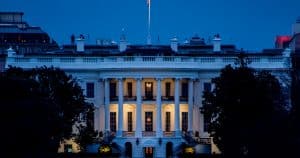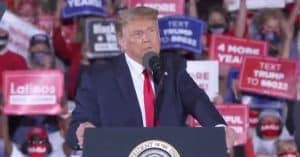Justice Alito Speaks Out Against Supreme Court Declining Race-Based Admissions Case
Justice Samuel Alito issued a vigorous dissent on Tuesday in response to the Supreme Court's decision to decline a writ of certiorari in a case concerning affirmative action at a prominent high school.
The Court's denial of certiorari came in the case of Coalition for TJ v. Fairfax County School Board, where a group of parents and students from the Thomas Jefferson High School for Science and Technology in Alexandria, Virginia, challenged a new admissions policy they deemed discriminatory against Asian Americans.
‘Wipe The Decision Off The Books’: Justice Alito Blasts Supreme Court For Declining Review Of Racial Admissions Case https://t.co/UwjB9yEfBX
— Daily Caller (@DailyCaller) February 20, 2024
The refusal to hear the case left intact a ruling by the U.S. Court of Appeals for the Fourth Circuit that upheld the policy. In his dissent, Alito criticized the majority for departing from the precedent set in the ruling of Students for Fair Admissions, Inc. v. Harvard, which found race-based admissions policies unconstitutional.
Alito, joined by Justice Clarence Thomas, asserted that the Fourth Circuit's decision was flawed, particularly regarding its interpretation of "disparate impact," a standard used to assess whether ostensibly race-neutral policies have discriminatory effects.
He argued that the new admissions policy disproportionately disadvantaged Asian-American applicants while benefiting other racial groups. Alito contended that this interpretation was erroneous and should not stand.
The Fourth Circuit, represented by Judge Robert Bruce King, refuted claims of intentional discrimination against Asian Americans, stating that the new policy did not target any specific racial group.
Alito dismissed this argument as "clearly mistaken" and "completely distorted," maintaining that the policy unfairly burdened Asian-American applicants.
Alito also highlighted evidence from the case record, including communications from school officials expressing a desire to increase the enrollment of black and Hispanic students.
He cautioned that the Court's decision could set a precedent for circumventing constitutional prohibitions on race-conscious admissions policies, a concern echoed by various amici curiae.
The decision not to grant certiorari required the support of four justices, indicating that Chief Justice John Roberts and Justices Neil Gorsuch, Brett Kavanaugh, and Amy Coney Barrett voted against it.
Despite Alito's critique, no opinion was issued in response to his dissent, fueling additional speculation concerning the case.




